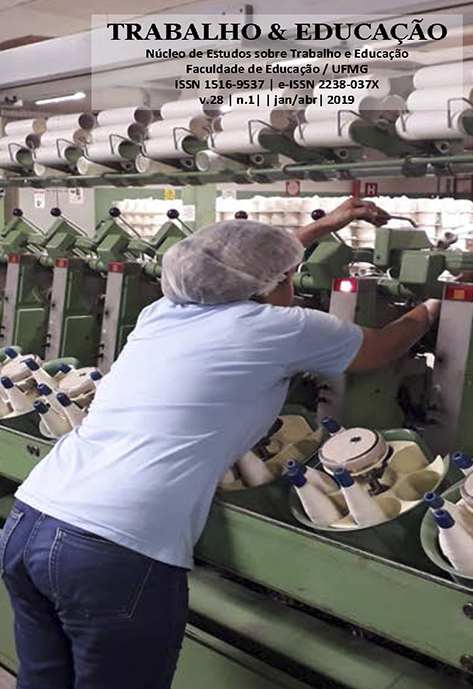Young people [in] scene on the stage of life
modes of individuation in the intertwining between the world of work and
Keywords:
Young People, Work, SchoolingAbstract
This dissertation results from research carried out with young former workers of the Brazilian Red Cross (CVB) who worked at the Federal University of Minas Gerais (UFMG) from 2011 to 2013. The research aimed to understand how paths of individuation have been configured among youth, paying attention to the intersection between work and schooling. It takes into consideration the processes of socialization in place five years after this youth had left the university. The theoretical-methodological pathway sought to give a sociological zoom in the individual plots, stories, and dramas of young people by considering authors of the sociology of youth, of work, and education, as well as the sociology of the individual. Therefore, we wove analyses that sought to articulate the experiences of young people in the family, work, and schooling. As for the methodological approaches, we had 95 young people responding to a survey aiming to build their profiles, and we developed individual interviews with nine of them. Biographical narratives were expressed in "sociological scenes" that revealed the movement and dynamics that permeated young people lives who were immersed in multiple socializing instances. These scenes evidenced how each one of them faced their challenges and what were their supports. Among the results, we found a homogeneity concerning labor paths of these youth through their insertion in the service sector taking jobs seen as precarious. Although, the heterogeneous manner in which young people lived, struggled and faced the world of work also stood out. The experiences of young former workers of the CVB were marked by unique ways of (re) existing to precarious work processes through their supports. Thus, young people questioned and also refused to accept some jobs which were "destined" to them. Their reasons, among other things, were related to the work experience they had at UFMG. In the scope of schooling processes, the narratives mostly reflected the lack of articulation between school longevity projects and the objective conditions of the young. Nonetheless, young people used different supports and strategies to become students and to reach higher education or other projects. Families, especially mothers, have a significant place, functioning as important support, but also and quite often contradictory, in the process of constructing young people as individuals. In summary, we consider that the young people in this research constructed their pathways of individuation, having as support the expectation of “becoming something in life.” They constituted themselves as "hyper-individuals" in the face of the permanent adventure of facing challenges. Therefore, the way young people lived became for them a biographical solution to systemic contradictions.













